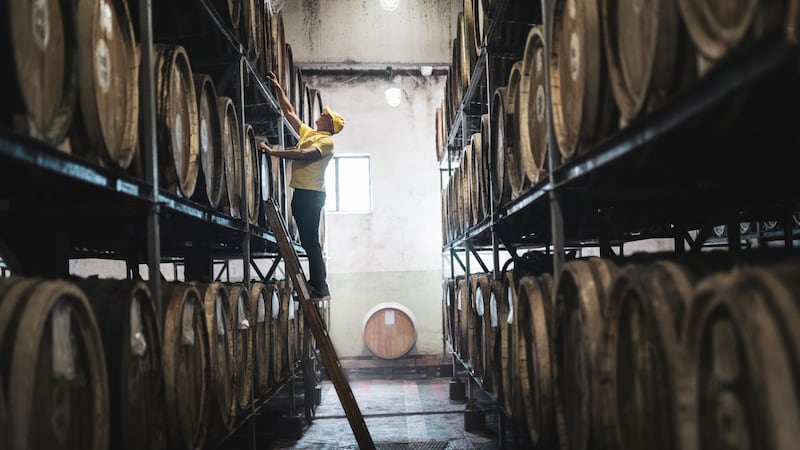Tough love for suppliers is driving bigger profits for retailer and better value for consumers
TESCO IRELAND likes to play hardball. Its executives make no apologies for its ruthless streak. Time and again they repeat the line that their primary focus is to deliver better value for Irish consumers.
Earlier this week, the supermarket group unveiled a price promotion that it presumably hoped would be hailed universally as great news for cash-strapped Irish consumers. It said it was reducing the prices on more than 1,000 product lines.
Within 24 hours, however, it was embroiled in controversy after this newspaper revealed that prices on many of the products reduced as part of the promotion had gone up in the early weeks of the year.
Senior Tesco executives in the UK were said to be furious with the negative publicity and made their views known to their Irish counterparts throughout the week.
The company has batted away criticism of the price yo-yoing and, apart from blaming some price hikes on suppliers who wanted increases because of the rising cost of commodities on international markets, has reverted to the line that the most important thing was not that prices went up before coming down, but that Tesco continued to deliver better value for Irish consumers.
To be fair to Tesco, it probably is the cheapest mainstream supermarket in the State and can have a major impact on driving down prices here.
In 2009 it launched a massive campaign that it said would result in prices across its stores falling by an average of 22 per cent. It was able to drop prices in the “Change for Good” promotion by centralising its distribution system, buying for this market from international suppliers and putting pressure on local suppliers to drop prices.
Other supermarkets followed suit and the campaign was a major influence in driving down prices over the next 12 months.
But who, ultimately, paid the price? Irish suppliers say they were asked to take the hit.
While none will go on the record and talk about what it is like to do business with the company, the largest retailer in the State and the third-largest retailing outfit in the world, in case they fall out of favour, many talk about how difficult Tesco is.
It strikes deals covering 12 months and then demands changes months later; it promises a certain amount of shelf space and does not deliver; it drops product lines without informing suppliers and producers; and it arbitrarily increases prices.
Last year, this newspaper revealed Tesco had been demanding millions of euro from Irish suppliers in return for the continued stocking of their products on the supermarket’s shelves. Individual suppliers were asked to pay up to €500,000 in order to get into its stores.
A former Tesco employee who spoke to The Irish Times yesterday talked of “the relentless pressure” senior management places on buyers to deliver increased profits that can be sent back to the UK parent.
He said that pressure always intensified in the last two months of the company’s financial year, which ends on February 28th, and said the easiest thing the company’s buyers could do to maximise profits was to increase prices. He claimed the company behaved differently in the UK because it had two very strong competitors in the form of Asda and Sainsbury’s.
“In the Republic, they see themselves as invincible.”
One well-known supplier, who spoke on condition of anonymity, said the relationship with the company could be very difficult but said it wasn’t bad at the moment.
He said the “Change for Good” campaign involved Tesco tightening the screw on suppliers by demanding they cut their prices across the board.
“I used to think their failure to deliver on promises was because the Irish guys were trying to screw us but now I think it is because a lot of the strategic stuff has moved to the UK where they simply don’t understand the Irish market. Decisions are being taken over the heads of the Irish guys.”
Over the last 12 months, he said he had adopted a new strategy and it appeared to be working. “I got fed up with them moving the goalposts so I just said it had to stop. To be fair, the Irish guys are trying to change things and have taken criticism on board.”
At one point, Tesco’s head office in Dublin employed about 400 people. That number has fallen by more than half in recent times and morale is said to be on the floor.
Increasingly, Ireland is being viewed as a provincial backwater by the parent company – albeit a very profitable little backwater – and all the strategic decisions are being taken in the UK.
While the company may be ruthless with many suppliers, it tends to treat small artisan producers like favourite pets, one said.
“If you are a small supplier with a good product, they will be very good to you because they recognise that there is good PR to be found in stocking certain locally produced products. The small suppliers are love-bombed and treated almost like favourite pets. The large suppliers can stand up to Tesco. It is the mid-level suppliers that really bear the brunt of the company’s tough love.”














